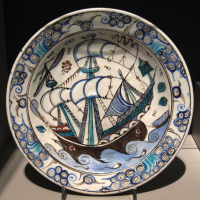Prasenjit Duara, Raffles Professor of Humanities and Director of the Asia Research Institute at the National University of Singapore
Lecture co-sponsored by the Advanced Seminar in East Asian Studies, Charles and Elfriede Collis Professorship in History, Department of Anthropology, Department of Asian and Middle Eastern Languages and Literatures, Department of History, Leslie Center for the Humanities, and the Nelson A. Rockefeller Center for Public Policy and the Social Sciences.
Network Asia: Histories of the Future
Accelerating globalization has ironically intensified regional connections and interdependencies as much in relation to capital, people and culture as to shared regional resources or ‘commons’ – water, air, microbes, security risks, etc. Whereas US based area studies was an effect of the US government’s requirement of language and area studies of new nations, the present moment of area studies ought to reflect upon history and society from the present imperatives of regional connections. This cannot be at the expense of national or local processes; but I believe that we can better understand these processes by viewing them from the perspective of regional and global commons.
Historically the region known as Asia had no strict boundaries; but it was densely interconnected by networks of trade and religion. These informal networks had profound implications for the relationship between culture and society across the region. Today, there is an emerging consensus that continuing our pursuit of existing modes of production, consumption and the political economic arrangements underpinning them will endanger planetary sustainability sooner than we realize. I seek to demonstrate how the intersecting networks of political, cultural and civil society organizations across these societies—particularly around ASEAN-- can provide an alternate framework to rethink the future of the historical region from the perspective of sustainable modernity.
